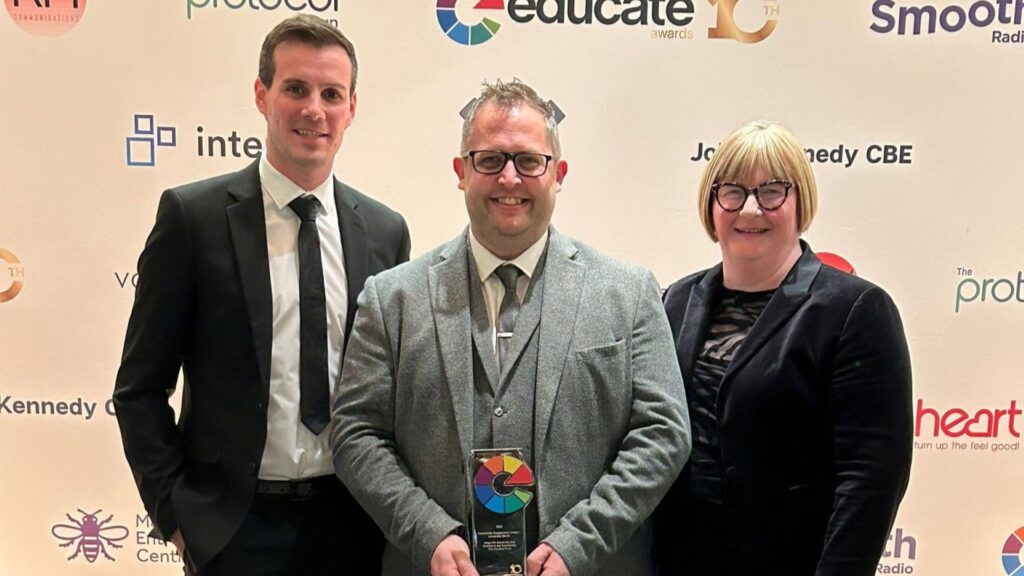Senior Lecturer in Criminology, Dr Anna Bussu, brings her first-hand experience of working within the international justice system to her teaching. Anna sat down to talk to us about her specialist area and how this can be explored on our BSc (Hons) Criminal Justice programme.

What is restorative justice and restorative practice?
Restorative justice is a global movement which focuses on the rehabilitation of offenders through reconciliation with victims and the community. In England and Wales, there has been concern that the justice system is not very focused on the victim and their emotional and psychological needs. Restorative justice is an approach that allows people affected by crime to communicate with the person responsible, often with the aim of a face-to-face meeting. It provides an opportunity for dialogue between the offender and the victim and/or their families. The aim is to encourage and improve communication between victim and offender and to try to give the victim some understanding about why the offender committed the crime. It has potential to get offenders to take responsibility for their actions, to understand the harm they have caused, to give them an opportunity to redeem themselves and can even discourage them from causing further harm. Restorative justice also gives offenders the opportunity to reflect on the impact their crime has had on the victim, on themselves, and on their community life. It provides them with an opportunity to make significant and appropriate amends and hopefully allows them to be able to return to their communities being much more settled.
Restorative justice approaches can be used outside of the criminal justice system too. In schools, higher education and in the community, for example, restorative approaches can help to achieve several positive effects, including improvements in behaviour. Restorative practice can also bolster young people’s self-esteem and confidence. The techniques and methods used by professionals to implement restorative justice approaches are known as restorative practices. There are several interesting restorative practices, like mediation, restorative dialogue, family group conferences, peace circles, and restorative justice boards (Boyes Watson and Pranis, 2010). These practices can also be used to support wellbeing and good communication among people.
How can students get involved with these topics on their degree?
The BSc (Hons) Criminal Justice course is a multi-disciplinary degree that will develop your understanding of the criminal justice system and the treatment and management of offenders. Themes around restorative justice and restorative practice are explored across all three years of the course. Within our modules we’ll take a deep-dive into topics like women, girls and offending, and the rehabilitation and treatment of offenders.
Across these modules, you will learn and develop the skills required to work in a range of settings. Restorative justice is not just about managing offending behaviour, it is also about prevention. Whether you have an interest in working in prisons, youth justice and probation, or in journalism, crime policy, or security, you will learn the theory and practice around management, promotion, prevention, reintegration, inclusion of offenders and ways to tackle offending behaviour. You will be able to explore the different experiences faced by victims and offenders in the UK and compare this with other countries processes when it comes to dealing with offending behaviour. The degree is also an opportunity for you to explore and discover which area of offending behaviour interests you the most, with the opportunity to go on placement to get a first-hand insight. Previously, students have taken placements in a range of settings from prisons and probation, to working within the community with charities and rehabilitation centres. In all modules there are opportunities to develop your knowledge, competency and ability as a future professional in this field, in whatever environment that may be.
Learning restorative practice approaches is also included in the peer mentoring training to support first year students. Having an understanding and an ability in restorative practice is key to future employability because it means that you can work within other disadvantaged categories, promoting and utilising the positive impacts of community building and sharing emotions in a democratic space.
Why is studying and working in this field important?
There is a significant need for more professionals trained in restorative justice approaches. Restorative approaches provide concrete benefits for victims, offenders and community members. For victims, for example, there is generally more satisfaction that justice has been served and it often helps to significantly reduce their post-traumatic stress symptoms and their desire for revenge against their offenders.
A lot of rehabilitative programmes are focused on trying to repair the damage and the conflict between the offender and the community. Without the community we cannot support the offender. So, it is also important for students to understand that if we want to support offenders with their rehabilitation and re-integration into society, we also need to work with the community itself. Working with young offenders and adopting restorative practices (like mediation, restorative dialogue, family group conferences) can also be very insightful and important for their personal transformation and rehabilitative journey.
Any advice or top tips for prospective students looking to study this topic?
My first piece of advice would be to read and research a little bit about the city of Hull who gave themselves the ambitious task of becoming the world’s first restorative city. The aim was to create a more socially and emotionally confident youth population, encouraging a more aspirational outlook (see Green et al., 2013). Secondly, I would suggest that you generally read and watch materials around these topics. Often prison dramas include scenes focused around restorative justice and feature restorative practice approaches and this will provide you with a good insight into this approach.
May 11, 2022


